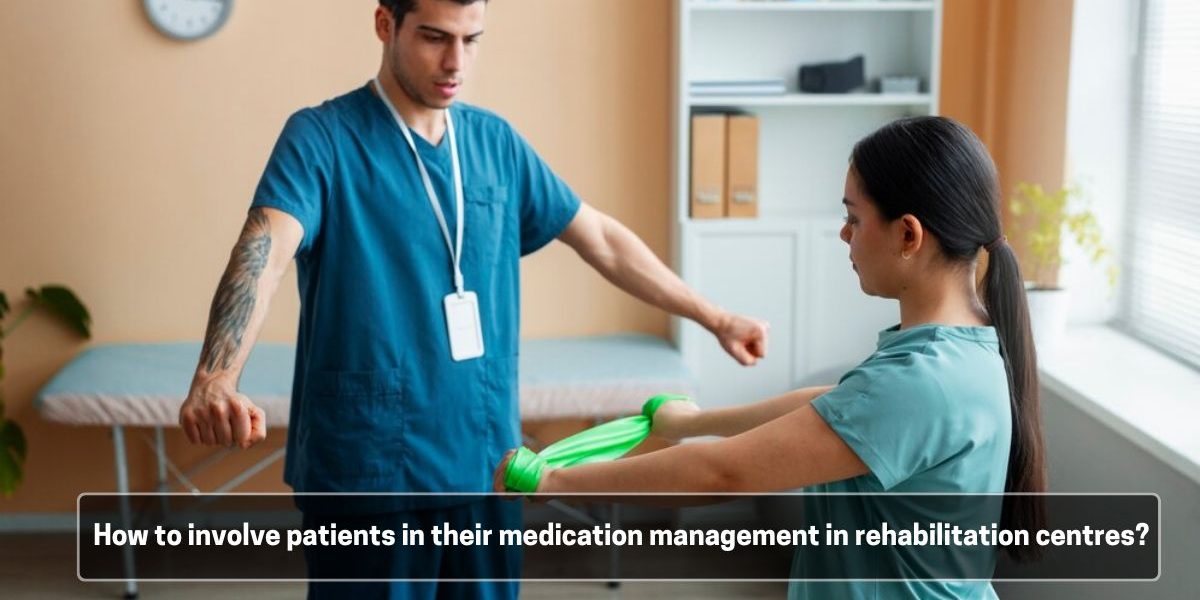Involving patients in their medication management in rehabilitation centres is essential to improve adherence, ensure safety, and empower patients in their recovery journey. Here, we share some strategies to effectively involve patients in medication administration in rehabilitation centres.
- Comprehensive education sessions: Caregivers should conduct sessions to educate patients about their medications, including their purposes, dosages, and potential side effects. These sessions help patients understand why they need to take their medications and what to expect, which can reduce anxiety and improve adherence.
- Providing easy-to-understand written materials, such as pamphlets and brochures, is also important. These materials should outline key information about the medications in a simple format, making it easy for patients to refer back to them whenever needed. Clear, concise written instructions help reinforce what patients learn during education sessions.
- Collaborative planning: Caregivers need to work with patients to develop personalised medication plans. By involving patients in the planning process, caregivers can ensure that medication schedules are convenient and manageable, which helps improve adherence.
- Open dialogue: Encouraging open and honest communication about medication experiences, side effects, and concerns is essential. Caregivers should create a supportive environment where patients feel comfortable sharing their thoughts. This helps identify any issues early on and address them promptly.
- Family involvement: Involving family members in the education and medication management process can be very beneficial. Family members can offer support and reminders, making it easier for patients to adhere to their medication plans.
- Support groups: Creating support groups where patients can share their experiences and tips for managing medications is also helpful. These groups provide a sense of community and encouragement, which can boost adherence and morale.
- Surveys and feedback forms: Care staff can use surveys and feedback forms to gather patient input on their medication management experiences. This feedback helps caregivers understand what is working well and what needs improvement.
- Suggestion boxes: Placing suggestion boxes in common areas for patients to anonymously provide feedback encourages them to share their thoughts and suggestions. This feedback can lead to valuable insights and improvements in medication management practices.
- Regular assessments: Caregivers must perform regular assessments to monitor patient adherence and make necessary adjustments to their medication plan. This ongoing monitoring ensures that any issues are identified and addressed promptly.
eMAR chart and medication administration in rehabilitation centres
eMAR systems can store detailed information about each medication, making it easy for caregivers to access and share this information with patients during education sessions. Patients can also use eMAR to review their medication details independently. Also, eMAR systems can be customised to reflect personalised medication plans. This ensures that both caregivers and patients have access to a clear and consistent medication schedule, making it easier to adhere to the plan. eMAR systems provide real-time data on medication administration, allowing caregivers to monitor adherence more effectively. The system can flag missed doses or irregularities, enabling timely interventions and adjustments to the medication plan .eMAR systems can provide access to family members, allowing them to stay informed about the patient’s medication schedule and any changes. This access helps families support the patient more effectively.







